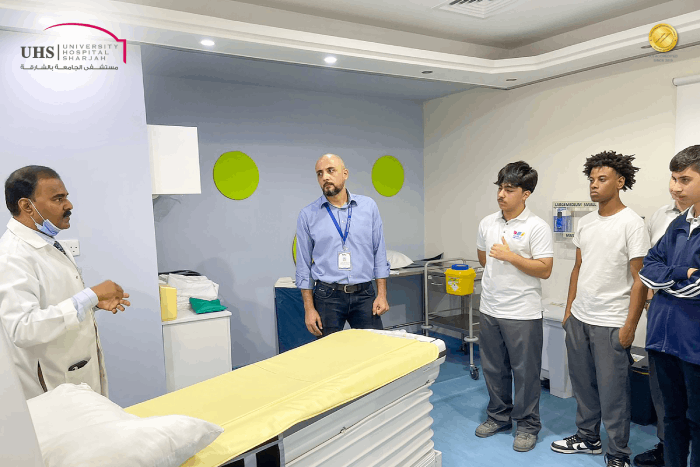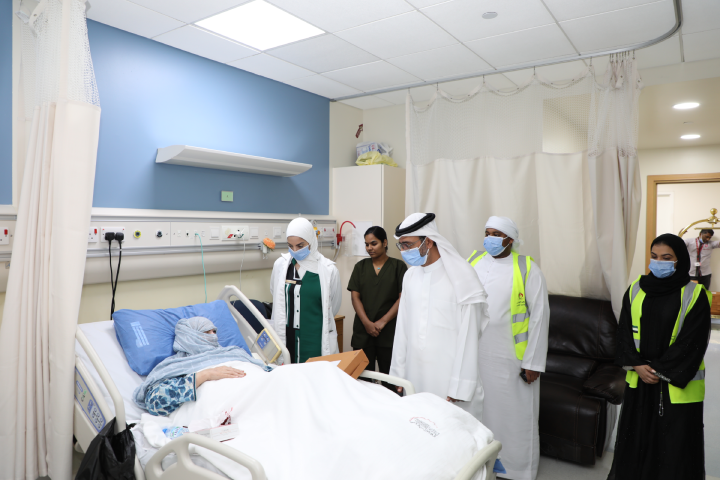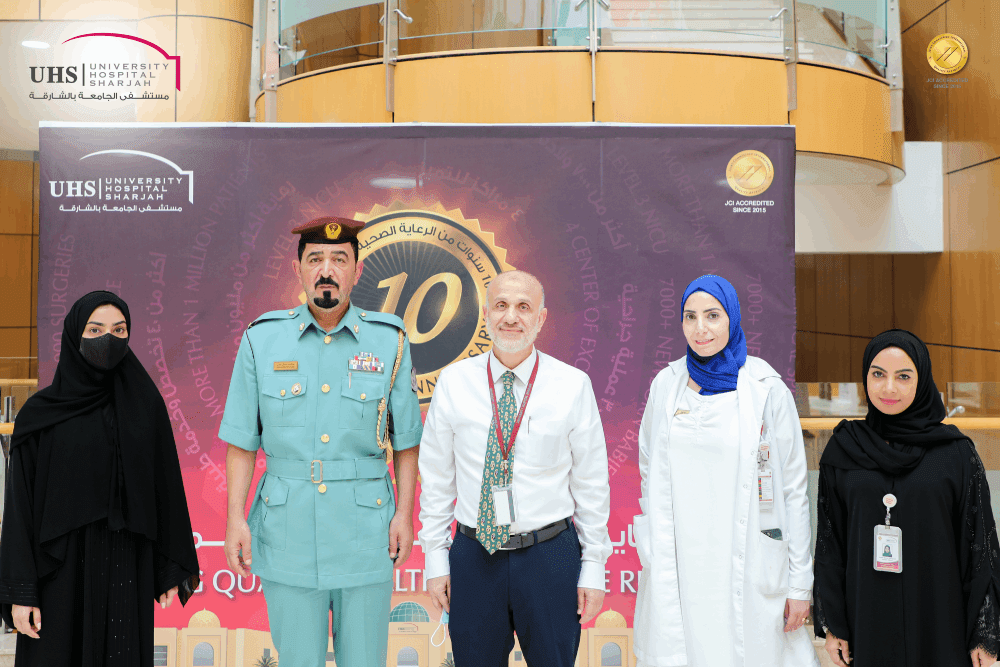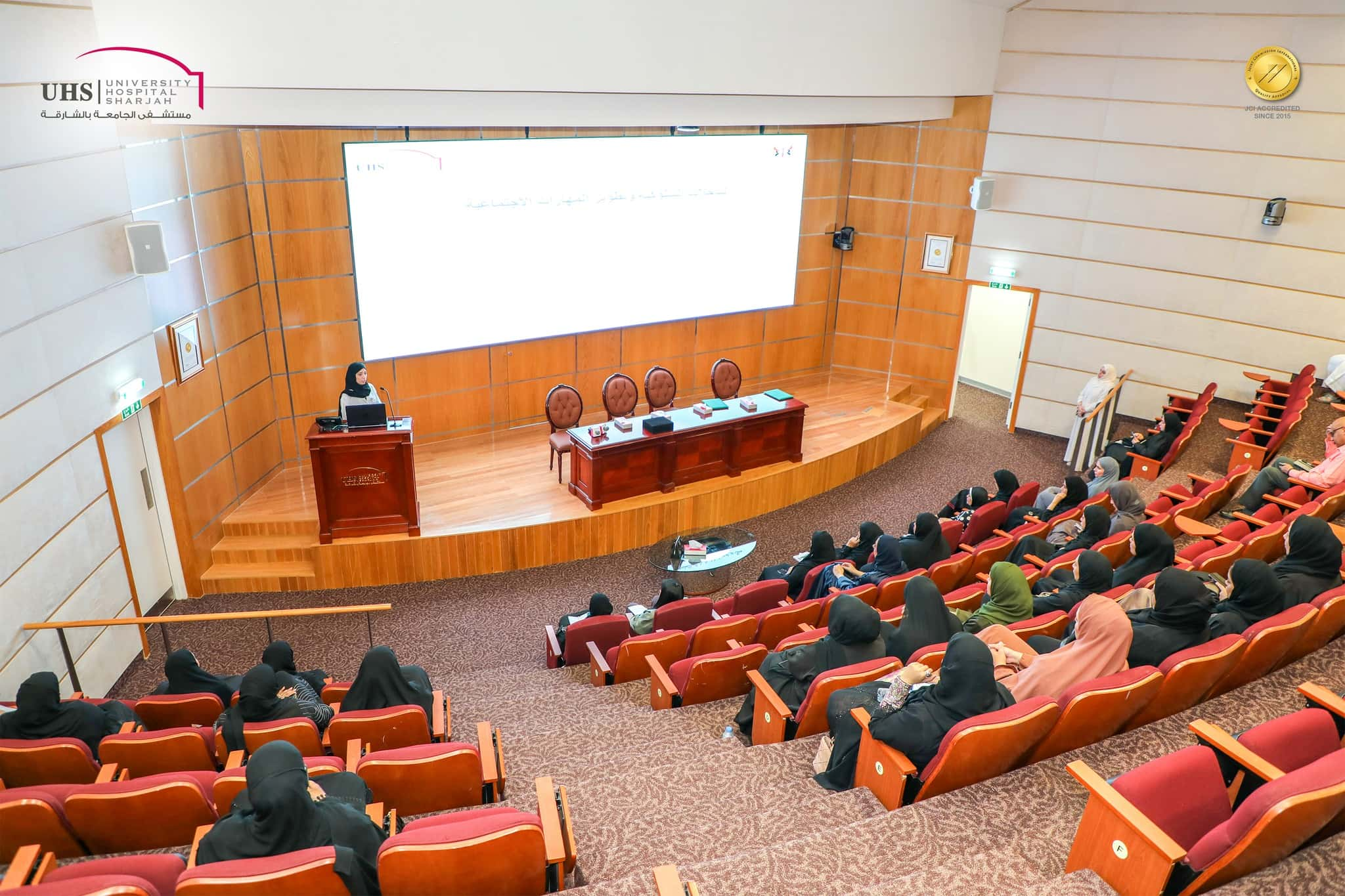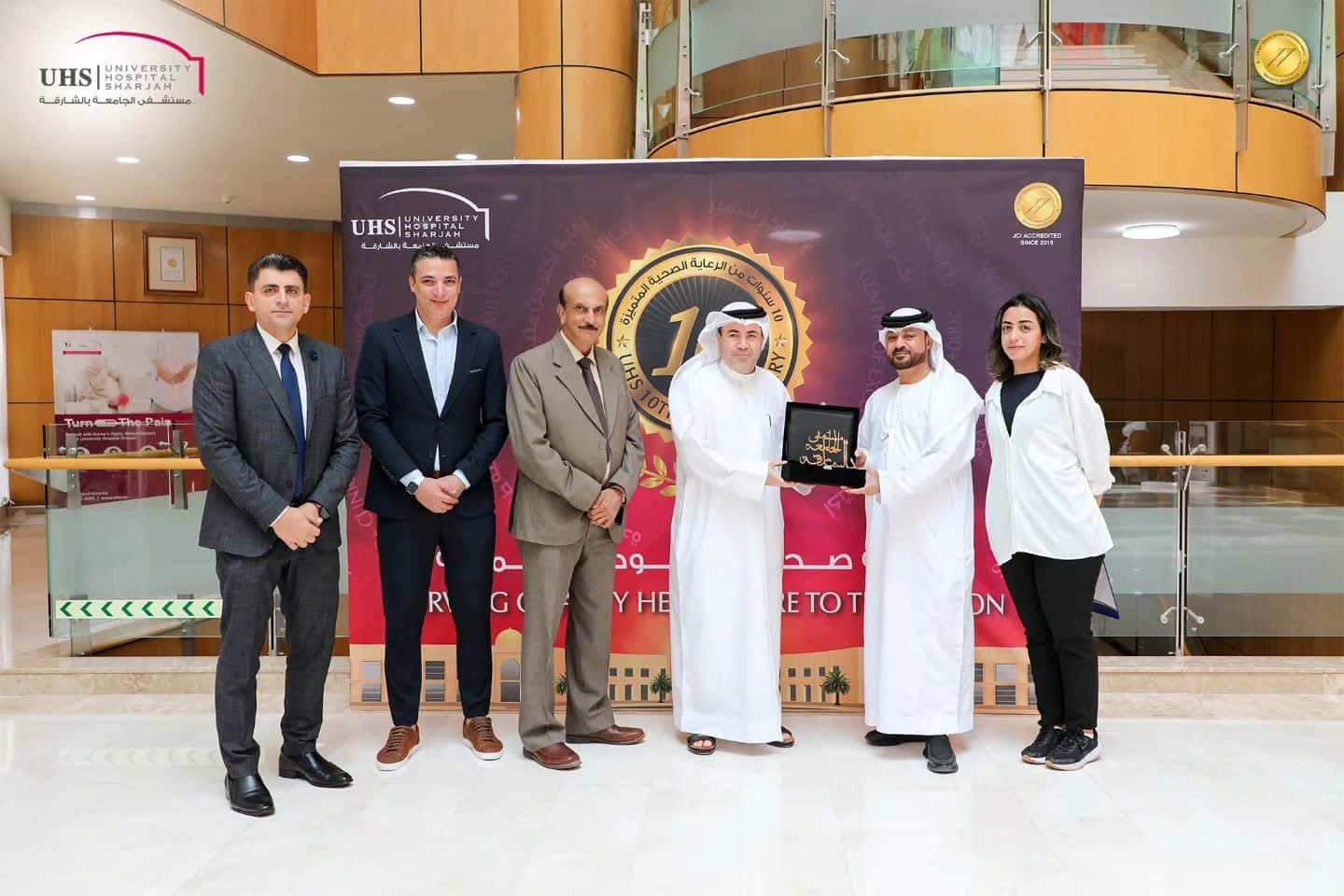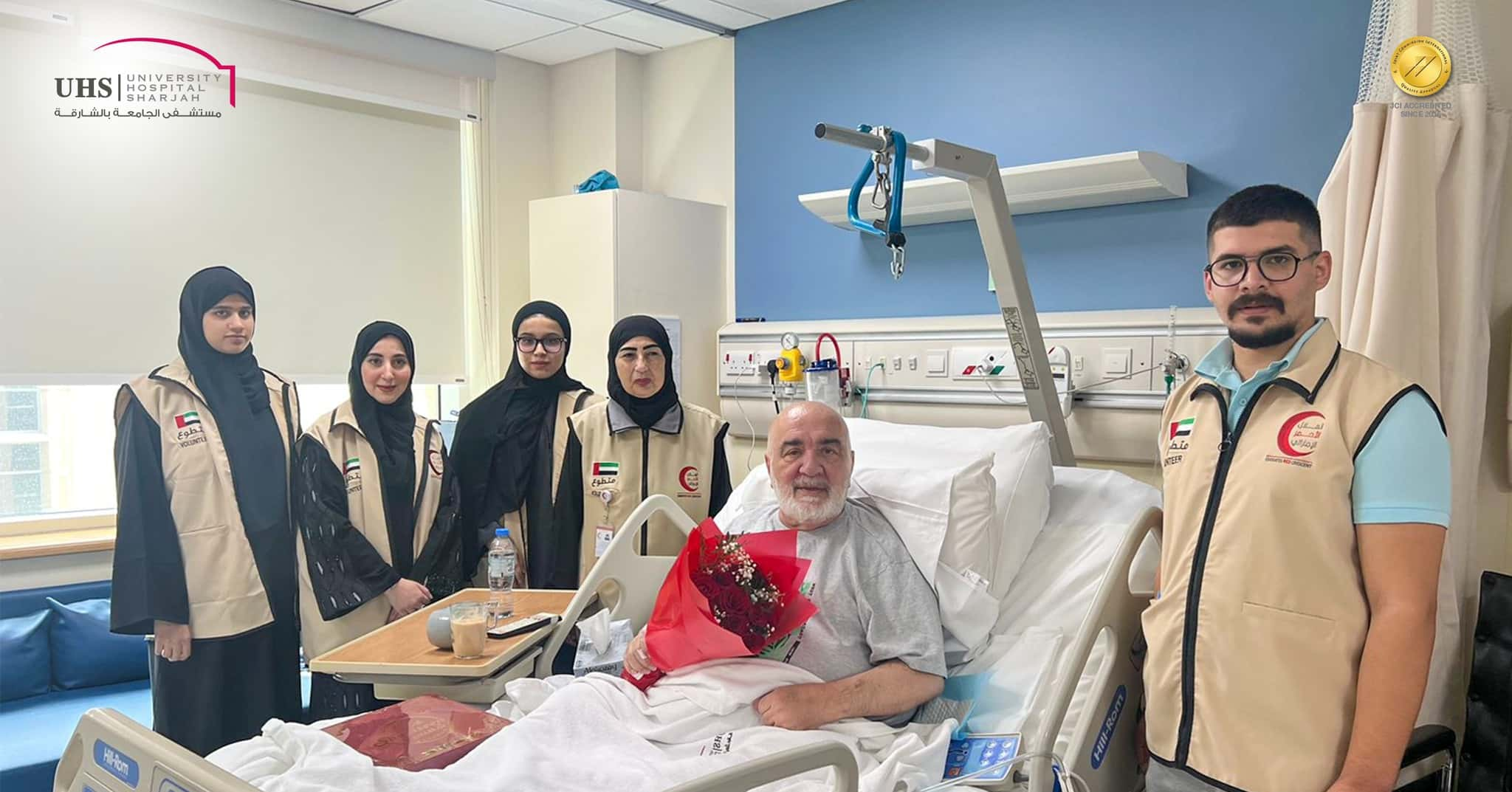News
Latest News
Students of Darb Al Saada Private School for Boys Visits UHSUniversity Hospital Sharjah hosted a group of students of Darb Al Saada Private School for Boys. They embarked on an exciting journey to the heart of healthcare within our hospital to explore its inner workings and various departments to enhance the quality of student's lives, foster innovation, and link trips with scientific material. We are proud to be part of their educational journey and wish them a bright future 906 |
Emirates Society for Parents' Care & Relief, Sharjah Visits UHS patientsUniversity Hospital in Sharjah was honored by the visit of the Emirates Society for Parents' Care & Relief, Sharjah Branch, headed by His Excellency Ayman Abdullah Al Radwan, Director of the society, along with a group of the Society’s volunteers, where they visited our patients and shared love, presenting gifts ❤️🎁 to enhance community bonds and communication 905 |
Friends of arthritis patients visits UHS patientsIn World Patient Safety Day, The Friends of arthritis patients’ association, carried out visits to a significant number of patients at UHS to inquire about their well-being. This initiative is part of their efforts to boost the patient’s morale and happiness. 894 |
Awareness Lecture with the Theme 'We join hands for their sake' at UHSIn collaboration with Sharjah Health Authority, University Hospital Sharjah organized an informative seminar aimed at raising awareness about childhood autism disorders.
The lecture featured an elite team of medical professionals from UHS who discussed various aspects related to autism spectrum disorders, including causes, symptoms, and the significance of family and medical therapy. 854 |
UHS Strategic Partnership with Sharjah Sports Club Continuation of the Strategic Partnership with Sharjah Sports Club, His Excellency Dr. Abdelaziz Saeed Al Mheiri, Chairman of the Board of Trustees of University Hospital Sharjah, warmly welcomed a delegation from Sharjah Sports Club. The fruitful outcomes of the extended partnership over the past three seasons between Sharjah Sports Club and University Hospital Sharjah were discussed. The parties expressed their anticipation for further collaboration in the future 851 |
Patient happiness initiative from the UAE Red Crescent AuthorityUHS had the honor of hosting a team from the UAE Red Crescent Authority as part of a humanitarian initiative under the theme 'Bringing Joy to Patients'. This initiative aims to strengthen community bonds, raise patient spirit, and relieve their pain. The volunteer team visited our patients, offering flowers and gifts as a gesture of compassion and care. 850 |






